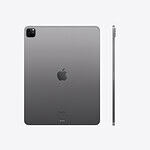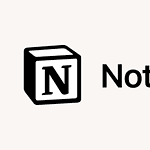Looking for a home phone solution that doesn’t require a traditional landline? VoIP services can be a great option for personal use, offering flexible calling plans and useful features. The best VoIP service for personal use will provide reliable call quality, affordable pricing, and the specific features you need without unnecessary complexity.
Many people have switched from conventional phone lines to VoIP (Voice over Internet Protocol) for their home phones. These services work through your internet connection and often include extras like caller ID, voicemail, and even mobile apps. Some popular choices include Vonage, which many users find works perfectly with regular cordless phones, as well as options like Ooma, Google Voice, and magicJack.
1. Ooma
Ooma stands out as a leading choice for home VoIP service. It consistently ranks at the top of consumer ratings, with Consumer Reports rating it as the top phone service. Amazon customers also seem to love it, giving Ooma a 4.6-star rating.
One of the biggest draws of Ooma is its cost structure. The basic service is essentially free after you purchase the equipment. Users only pay applicable taxes and fees, which typically amount to about $7 per month. This makes it much cheaper than traditional landline services.
Call quality with Ooma is excellent for most users. The system works by connecting to your internet router and then to your existing home phones. This setup allows for clear conversations without the typical delays or echoes found in some VoIP services.
Ooma offers both basic and premium plans. The basic plan includes essentials like caller ID, call waiting, and voicemail. For those wanting more features, the premium plan adds options like call blocking, forwarding to mobile phones, and enhanced caller ID.
Setup is straightforward even for those who aren’t tech-savvy. The main Ooma device, called Telo, connects to your router and home phone. Most users can complete the setup in under 30 minutes without professional help.
Reliability is another strong point for Ooma. The service continues to work during power outages if you have a battery backup for your internet modem and Ooma device. This reliability factor makes it a good option for those who need dependable home phone service.
Customer service experiences with Ooma vary, but many users report satisfactory support when needed. Support options include phone, email, and online resources for troubleshooting common issues.
For those considering a residential VoIP provider, Ooma has been in the business for years and has established itself as a stable option. Users who have had the service for 2-3 years typically describe it as adequate to excellent depending on their specific needs and internet connection quality.
2. Vonage
Vonage is one of the oldest and most established names in the VoIP industry. They offer residential phone services starting at just $9.99 per month, making them an affordable option for many households.
Their service uses your existing internet connection to make and receive calls. This setup eliminates the need for traditional phone lines while still giving you a reliable home phone experience.
Vonage doesn’t lock customers into long-term commitments. Their plans come with no annual contract, giving users flexibility that traditional landline providers often don’t offer.
One standout feature of Vonage is their mobile app. It lets you use your home phone number on your smartphone, which means you can take and make calls on the go as if you were using your home phone.
The company includes many calling features that would cost extra with a traditional phone company. Call waiting, caller ID, and voicemail come standard with their plans.
For people who call internationally, Vonage offers competitive rates. Some of their plans include free calling to certain countries, which could save money for families with relatives abroad.
Users on Reddit have mentioned being generally happy with the service, though some plan to explore other options like setting up their own SIP providers with local ATAs or Asterisk.
Setting up Vonage is straightforward. They provide an adapter that connects to your internet router and existing phones, making the transition from a traditional landline simple.
The service includes useful features like simultaneous ring, which can ring multiple phones at once, and call forwarding to ensure you never miss important calls.
Vonage has built its reputation on being easier to use and less expensive than traditional landlines. Their focus on simple setup and operation makes them accessible even for those who aren’t tech-savvy.
According to PC Mag, Vonage might be the most established VoIP player in the residential market. Their long history in the industry has given them time to refine their offerings.
3. RingCentral
RingCentral stands out as a major player in the VoIP market, serving over 400,000 brands worldwide. Though mainly known for business solutions, they offer services that can work well for personal use too.
RingCentral provides reliable VoIP phone service anywhere you have internet access. This flexibility makes it convenient for people who need to stay connected while moving between locations.
The company offers a free trial so you can test their system before committing. This gives you a chance to see if their features match your personal needs without any upfront cost.
Pricing starts at $20 per month, which is higher than some competitors. However, RingCentral recently added AI Assistant features to all plans, which might justify the cost for some users.
These AI features include call transcription, note capturing, and even translation services. For personal users who need these advanced capabilities, the extra cost might be worth it.
Users praise RingCentral’s IVR (Interactive Voice Response) settings. These allow you to set up customized answering systems even for personal lines.
One popular feature is the ability to use both your desktop and cell phone with the service. This eliminates the need to carry multiple phones, which is convenient for daily life.
The platform is known for its reliability and call quality. Since poor call quality can ruin the VoIP experience, this is an important consideration for personal users.
RingCentral’s robust communications solution goes beyond basic calling. It includes messaging and meeting capabilities that might be excessive for simple personal use but valuable for home offices.
For individuals looking for a feature-rich VoIP service and willing to pay a bit more, RingCentral delivers a comprehensive package. Their trusted AI-powered communications approach offers more than just basic phone service.
4. Nextiva
Nextiva stands out as a top VoIP phone service trusted by over 100,000 brands. While often known for business solutions, many of its features work well for personal use too.
For individuals seeking reliable service, Nextiva offers nationwide unlimited calling plans starting at $18.95 per month. This makes it affordable for everyday users who need dependable communication.
The service includes more than just voice calls. Users get access to text messaging, conferencing, and team chat features within the same platform. This creates a complete communication package for personal needs.
Nextiva’s cloud-based system means you don’t need special equipment to use it. A simple internet connection lets you make calls from various devices including smartphones.
Call quality remains a strength of Nextiva’s offering. The company has built a reputation for clear connections and minimal downtime, important factors for personal communications.
While some users on platforms like Reddit note that Nextiva might be better suited for larger companies, individuals can still benefit from its robust infrastructure.
The platform also offers HIPAA-compliant communications, including phone service, virtual fax, and video conferencing. This extra security might appeal to privacy-conscious personal users.
Nextiva’s system works across devices, letting you answer calls on your computer, tablet, or phone. This flexibility helps personal users stay connected wherever they are.
Customer support remains another key advantage. Having friendly help available when setting up or troubleshooting your personal VoIP service reduces frustration.
The user-friendly interface makes managing your personal phone service simple. You don’t need technical knowledge to set up call forwarding or voicemail.
For those who value reliability in their personal communications, Nextiva has built a solid reputation. More than a million users currently rely on their VoIP solutions for consistent service.
5. Google Voice
Google Voice is a simple VoIP service that gives users control over their calls. It works on both desktop and mobile devices, making it very flexible for personal use.
One of the best things about Google Voice is the price. It’s one of the most affordable cloud phone systems available, which makes it perfect for people who want VoIP service without spending a lot of money.
Google Voice lets you forward calls to any device you want. This means you can answer calls on your cell phone, computer, or tablet – whatever works best for you at the time.
Spam protection is another helpful feature. Google Voice can block unwanted calls automatically, so you don’t have to deal with annoying spam callers. You decide who can reach you and when.
For home use, Google Voice can be set up as a landline alternative. Some users connect devices like the OBI200 to set up Google Voice on existing phone jacks, turning regular home phones into Google Voice phones.
If you already have Google Fiber internet, you can add VoIP phone service for just $10 a month. This gives you unlimited nationwide calling through your internet connection.
Google Voice has been around for many years and has built a loyal following. Many people on forums like Reddit discuss using it as their main phone service.
The service integrates well with other Google products. If you already use Gmail or other Google services, adding Voice makes sense as everything works together smoothly.
Setting up Google Voice is straightforward. You can sign up online and be making calls in minutes. The user interface is clean and easy to understand, even for people who aren’t tech experts.
6. magicJack
MagicJack is a budget-friendly VoIP option that’s been around for years. This small device connects to your internet router and lets you make calls using a regular home phone.
The service offers unlimited calling to the US and Canada at a very affordable price. Most users pay around $35 per year, which is much cheaper than traditional phone services that can cost $35 per month.
Setting up magicJack is simple. Just plug the device into your router, connect your phone, and you’re ready to make calls. You can also keep your existing phone number when switching to their service.
MagicJack now offers different service options to fit various needs. They have magicIN for receiving calls and magicOUT for making calls, giving users flexibility to choose what works best for them.
The service includes standard features like voicemail, caller ID, and call waiting. Their 2024 model has improved reliability compared to older versions that sometimes had connection issues.
For travelers, magicJack is particularly useful. The portable device can be taken anywhere with internet access, allowing you to make calls while avoiding hotel phone charges or international roaming fees.
While primarily marketed to homes, magicJack can also work for small businesses. It provides a standard phone system with affordable VoIP hardware that might be enough for basic business needs.
Call quality depends on your internet connection. Users with fast, stable internet generally report clear calls, while those with spotty connections may experience occasional issues.
Customer service has improved in recent years, though it’s still not the strongest point of the service. Most support is handled through online channels rather than phone support.
7. Dialpad
Dialpad offers a robust VoIP phone service that works well for personal use. The platform combines phone calls, SMS messaging, and meeting capabilities all in one application.
Users appreciate Dialpad’s intuitive setup and reliable service. According to feedback on Reddit, some customers have been very satisfied with the system, finding it both reliable and easy to configure.
The service stands out for its AI-powered features. These smart tools help manage calls and provide support that many personal users find valuable.
Dialpad’s cloud-based system means users can make and receive calls from anywhere with an internet connection. This flexibility makes it a practical choice for people who need their phone service to move with them.
One key advantage is the all-in-one approach. Instead of juggling multiple apps, users get calling, video meetings, and messaging in a single platform. This simplifies communication for personal users who want less tech hassle.
The service has earned recognition in comparison reports. It ranks among the best VoIP providers based on actual customer reviews and feedback.
For budget-conscious users, Dialpad offers good value. Forbes lists it among the best cheap VoIP phone service providers of 2025, noting its strengths in customer data protection and AI support.
While originally designed for businesses, many personal users find Dialpad’s features perfect for their needs. The platform scales well for individual use without overwhelming with unnecessary options.
The mobile app experience is smooth, letting users take their phone number anywhere. This portability appeals to travelers or anyone who wants freedom from traditional landlines.
Customer support quality is another highlight that personal users mention frequently. Having reliable help available when setting up or troubleshooting provides peace of mind for less tech-savvy individuals.
8. 1-VoIP
1-VoIP stands out as a leading VoIP provider for both residential and business customers. They focus on delivering premium features while keeping costs lower than traditional phone services.
Their residential plans include many useful calling features that make it a good choice for personal use. You get standard options like caller ID, call waiting, and voicemail, plus some extras that other providers might charge more for.
The setup process is straightforward for most users. You can use your existing internet connection and either purchase an adapter from them or use a VoIP-compatible phone.
Call quality depends partly on your internet connection, but 1-VoIP has built a reputation for clear audio. This makes it reliable for everyday personal calls without the frustration of dropped connections.
One advantage of 1-VoIP is their residential service packages that fit different needs and budgets. You can select the plan that matches how you use your phone without paying for features you won’t use.
Customer service is an important factor when choosing a VoIP provider. 1-VoIP offers support to help with setup questions or any issues that might come up during use.
The company regularly appears on “best of” lists for home VoIP services. PCMag includes them in their top tested picks for 2025, showing their consistent quality.
For people looking to replace their landline, 1-VoIP provides a tech-forward alternative without complicated features that might confuse casual users. The service works well for families or individuals who want reliable calling without the high price of traditional phone service.
Monthly costs are competitive when compared to other VoIP providers with similar features. This makes it a budget-friendly option for personal phone service.
International calling rates vary by country, but they’re typically much cheaper than traditional phone companies charge. This is helpful if you have friends or family overseas.
9. PhonePower
PhonePower is a top VoIP provider offering phone services for both home and small business users. They focus on providing affordable options with plenty of features.
Their plans start at a competitive price point, making them worth considering for budget-conscious users. The company stands out by including a free cloned second line with their service, essentially giving customers two phone numbers.
Another helpful benefit is the 60 free minutes of international calling each month. This feature saves money for anyone who regularly calls family, friends, or colleagues overseas.
PhonePower has created a mobile app that extends the usefulness of their service. With the iPhone app, customers can make calls using their home phone number while on the go. This flexibility means never missing important calls when away from home.
The service offers many standard VoIP features that consumers expect. Their award-winning customer service team is available to help with any issues that might arise during setup or use.
For people looking to switch from a traditional landline, PhonePower presents a straightforward alternative. Their VoIP solutions come with a wide range of features designed to replace and improve upon old phone systems.
The company positions itself as providing “exceptional deals” on phone service. Their focus seems to be on delivering value through feature-rich packages rather than bare-bones offerings.
PhonePower caters to those who want to maintain a home phone number but with modern technology and without the high costs of traditional phone lines. Their service bridges the gap between old-school reliability and new-tech convenience.
10. Callcentric
Callcentric offers reliable VoIP phone service for personal use that many customers have trusted for years. One Reddit user mentioned they’ve been using Callcentric for about 15 years, praising its feature-rich service even though it’s not the cheapest option available.
The company provides flexible phone plans that let users mix and match incoming and outgoing options. This customization helps people create a service package that fits their specific needs and budget.
For budget-conscious users, Callcentric’s Pay-Per-Use plans can be very affordable. One reviewer noted their home service costs less than $9 per month, making it an economical choice for those who don’t make many calls.
Callcentric also offers phone numbers from around the world. This feature is handy for people who need to maintain a presence in different locations or want family overseas to reach them without paying international rates.
The call quality receives positive feedback, with customers mentioning “crisp calls” as one of the pros. Clear audio is essential for any phone service, and Callcentric seems to deliver in this area.
Setting up Callcentric might require some technical knowledge. A Bogleheads forum user mentioned it’s a bit more complicated to set up than other VoIP services. This could be challenging for less tech-savvy users.
The service works well for elderly users too, though assistance with setup might be needed. The same forum user successfully set up Callcentric for their elderly mother, suggesting it can serve various age groups once configured.
Callcentric offers a free account option for those who want to try the service before committing. This allows potential customers to test features and call quality without financial risk.
The company has built a reputation for reliability over many years in the VoIP market. Long-time customers often cite dependability as a reason they continue using the service for their personal phone needs.
Understanding VoIP Technology
VoIP technology has changed how we make phone calls by using the internet instead of traditional phone lines. This modern approach offers cost savings and flexibility that traditional phone services can’t match.
How VoIP Works
VoIP (Voice over Internet Protocol) converts your voice into digital data packets that travel over the internet. When you make a call, your voice is changed into these packets, sent through your internet connection, and then changed back into sound for the person you’re calling.
You need a few basic things to use VoIP:
- A stable internet connection
- A VoIP service provider
- A VoIP-compatible device (phone, computer, or smartphone)
Your voice quality depends mainly on your internet speed. For good calls, you need at least 100 kbps upload and download speeds per line. Many home internet connections easily meet this requirement.
Unlike traditional phones that use copper wires, VoIP uses your existing internet connection. This makes it much more flexible and often cheaper.
Benefits of Using VoIP
VoIP offers several advantages for personal use that make it worth considering:
Cost savings: VoIP calls are typically much cheaper than traditional phone services, especially for long-distance or international calls. Many providers offer unlimited calling plans at affordable rates.
Flexibility: You can make calls from anywhere with an internet connection. This is perfect for people who travel or work remotely.
Extra features: Most VoIP services include:
- Voicemail-to-email
- Call forwarding
- Virtual numbers
- Video calling
- Conference calling
Easy setup: Most personal VoIP solutions are designed to be user-friendly. You can often set everything up yourself without technical knowledge.
Keep your number: Many providers let you transfer your existing phone number, so friends and family can still reach you at the same number.
Features to Consider
When choosing a VoIP service for personal use, certain features directly impact your calling experience and satisfaction. These key elements will determine whether the service meets your daily communication needs.
Call Quality and Reliability
Call quality should be your top priority when selecting a VoIP service for home. Poor sound quality or dropped calls can make conversations frustrating.
Look for providers that offer HD voice capabilities, which provide clearer sound than traditional phone lines. Many quality services like Vonage have satisfied home users with reliable connections.
Your internet connection plays a huge role in call quality. A minimum upload and download speed of 100 kbps per line is needed, but faster is better for crystal-clear calls.
Consider these reliability features:
- Uptime guarantees (99.9% or higher is ideal)
- Redundant servers to prevent outages
- Quality of Service (QoS) settings that prioritize voice traffic
Most reputable providers include detailed call quality statistics in their dashboards so you can monitor performance.
Ease of Use
A VoIP service should make your life simpler, not more complicated. Many users switch away from providers with confusing interfaces or complicated setup processes.
The best residential VoIP providers offer plug-and-play setup that works with existing phones. This means you can use your familiar handsets rather than learning new equipment.
Look for these user-friendly features:
- Simple account management through web portals or apps
- Intuitive mobile apps for making calls on the go
- Straightforward voicemail access and retrieval
- Easy configuration of call forwarding and other settings
The ability to use regular phones with adapters is a big plus for home users. This feature lets you keep your familiar equipment while gaining VoIP benefits.
Customer support availability is also crucial. The best services offer 24/7 help through multiple channels when you have questions or technical issues.
Frequently Asked Questions
VoIP services offer significant savings and flexible features for home phone users. Many questions come up when picking the right service for personal needs.
What are some highly recommended VoIP services for use at home?
Ooma stands out as a top choice for home users with its excellent call quality and reasonable pricing. The service offers a one-time hardware purchase with minimal monthly fees for taxes.
Google Voice provides free calling within the US and is perfect for those who need basic phone functionality without extra features.
Nextiva and RingCentral offer more robust features that might appeal to home-based business users or families needing advanced call management.
Vonage remains popular for its reliability and established reputation in the residential VoIP market.
How can I find affordable VoIP providers for my personal phone needs?
Compare monthly fees across multiple providers, looking beyond the advertised price to include taxes and fees. Many VoIP services can help you save up to 90% on your monthly phone bill compared to traditional landlines.
Check for contract requirements – some providers offer better rates with annual commitments while others provide month-to-month flexibility.
Look for providers that include essential features in their base plans rather than charging extras for caller ID, voicemail, or call forwarding.
Are there any VoIP phone services available at no cost for home users?
Google Voice offers free calling and texting within the US and Canada. It’s perfect for basic personal use but has limitations on international calling.
Free softphone apps like Zoiper can be used with paid VoIP providers who support BYOD (Bring Your Own Device) setups, as mentioned by users on Reddit.
Most completely free services have limitations in call quality, feature availability, or require watching ads.
What are the main factors to consider when choosing a VoIP service for home use?
Internet connection quality is crucial – VoIP needs stable bandwidth to maintain clear calls. Most home broadband connections work well, but satellite internet can cause issues.
Consider whether you need to keep your existing phone number, as most quality providers offer number porting.
Evaluate if you need hardware phones or prefer using mobile apps and software on existing devices.
Review emergency calling capabilities since not all VoIP services handle 911 calls the same way as traditional landlines.
How do I set up a VoIP phone system with my home internet router?
First, ensure your internet connection has sufficient speed – generally at least 100 Kbps per simultaneous call. Most modern home internet connections easily meet this requirement.
Connect your VoIP adapter or IP phone directly to your router using an ethernet cable for the best call quality. Wi-Fi connections can work but may introduce quality issues.
Check if your router supports QoS (Quality of Service) settings to prioritize voice traffic over other internet uses.
Many providers offer plug-and-play equipment that requires minimal technical knowledge to set up.
What should I be aware of in terms of quality when selecting a residential VoIP provider?
Call quality depends heavily on your internet connection stability. Test your connection speed and consider upgrading if it’s less than 3 Mbps download/upload.
Ask about support options – quality providers offer multiple ways to get help when issues arise.
Check if the provider implements HD Voice (wideband audio) for clearer conversations compared to traditional phone lines.
Look for providers that own their infrastructure rather than reselling other services, as this often results in better reliability and call quality.







